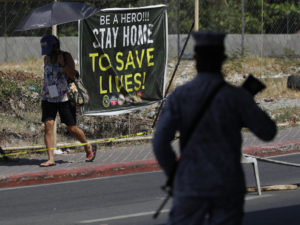LEGAZPI CITY—The coronavirus disease 2019 (COVID-19) testing capacity in the Bicol region increased on Friday after this city officially turned over laboratory machines to the Bicol Regional Diagnostic and Reference Laboratory (BRDRL).
Two polymerase chain reaction (PCR) machines worth P2.7 million each and an automated extraction machine worth P3.5 million were turned over to the testing laboratory, which is located also in this city.
BRDRL, Bicol’s first coronavirus disease 2019 (COVID-19) testing laboratory, may now test up to 500 tests a day, according to Legazpi City Mayor Noel Rosal during the turnover ceremony.
“At least, we can now show to the people that with the [transitioning] to the modified general community quarantine (MGCQ), we are also prepared,” Rosal said.
“This is what [President Rodrigo Duterte] really is waiting for. ‘What did our local governments and regional offices do?’” he said.
On June 1, the lockdown measures throughout Bicol were relaxed as it was put under MGCQ.
Rosal said that they have decided to sign an agreement with the DOH to speed up testing in the region since BRDRL already has the authority to conduct tests.
Dr. Ernie Vera, DOH Bicol regional director, said that previously, when the laboratory started operations, it only had the capacity to test 40 to 60 samples a day.
“This partnership (with Legazpi City) will bear favorable results as our specialists conduct examinations in the different provinces,” Vera said. “This will cover all six provinces of Bicol.”
He said that the department hopes that other local government units will replicate the partnership that Legazpi City formed with DOH.
Vera said that a fourth PCR machine, purchased through the Bayanihan To Heal As One Act, will arrive to give more testing capacity in region.
He, however, said that the laboratory space and personnel may not be enough.
“We now have, I think, a dozen (personnel) there,” he said. We will have one more PCR. So now, the issue here is, what is next? It (BDRDL) is full. So we have to adjust the building.”
He said that they might refer PCR machines to other hospitals in case other LGUs decide to purchase more PCRs for the laboratory.


